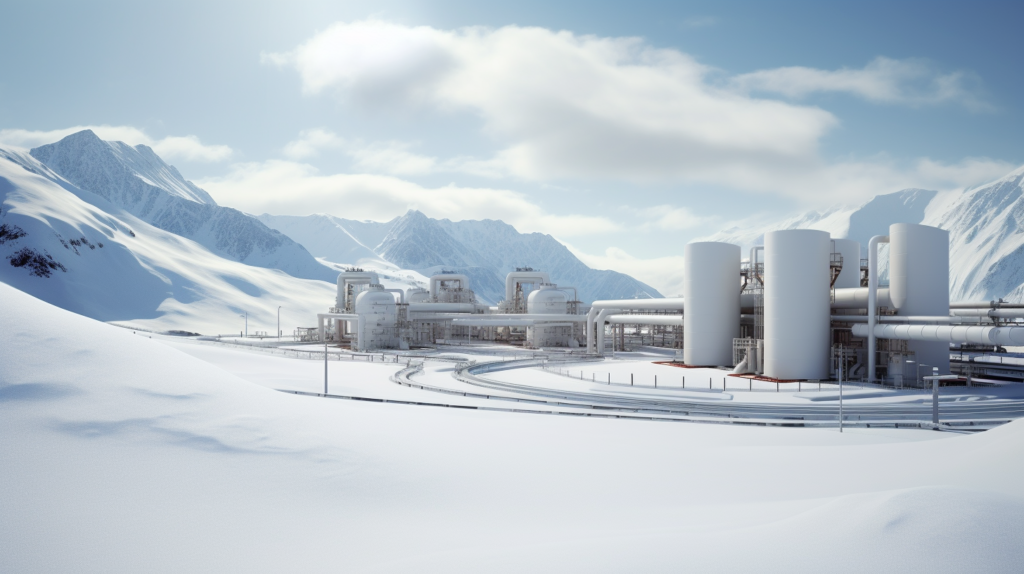Author: Vanessa Chen 18 December 2024 Category: gas Filter

What is natural gas?
In a broad sense, natural gas refers to all gases that exist naturally in nature, including gases formed by various natural processes in the atmosphere, hydrosphere, and lithosphere (such as oilfield gas, gas field gas, mud volcano gas, coalbed methane, and biogenic gas, etc.).
The definition of “natural gas” that people have long used is a narrow definition from the perspective of energy, which refers to a mixture of hydrocarbons and non-hydrocarbon gases naturally stored in the strata. Methane accounts for the vast majority of natural gas, and there are also small amounts of ethane, propane, and butane. Natural gas is a high-quality fuel and chemical raw material. Its main use is as a fuel, and it can also be used to make carbon black, chemicals, and liquefied petroleum gas.
Why do we need natural gas filters?
The transportation of natural gas can be divided into long-distance gas pipelines, urban gas pipelines, and industrial enterprise gas pipelines according to its use. During transportation, impurities in the gas itself, dirt in the pipeline, and mechanical impurities such as fragments peeling off the inner wall will affect the quality of gas transmission, and then damage some metering and pressure regulating equipment on the pipeline, causing immeasurable economic losses. Therefore, natural gas filters are particularly important. It can purify gas in various occasions to meet the safety requirements of pipeline transportation and the requirements of customers for natural gas quality.
What substances does the natural gas filter filter ?
In the process of natural gas pipeline transportation, four aspects of filtering efficiency are usually exerted:
- 1. Filter particulate matter: There are often suspended particulate matter in the gas, which will affect or even damage the equipment and instruments inside the pipeline. The natural gas filter or filter will effectively capture these particulate matter to avoid damage;
- 2. Filter liquid: Liquids such as water vapor and oil mist often exist in natural gas pipelines. After the accumulation of time, these liquids will corrode pipeline equipment and instruments. We need to use filter elements to filter the liquids, usually using oil-water separators or oil-water filters.
- 3. Filter impurities: Natural gas may contain certain impurities, including particulate matter, smoke, etc., which will affect the quality of natural gas and the safety of pipeline equipment. Usually we use special filtering equipment such as activated carbon filters and adsorber filters to remove impurities.
- 4. Desulfurization filtration: Due to the particularity of natural gas, it generally contains more sulfides, which will not only damage hardware facilities, but also affect the environment and human health. Therefore, during pipeline transportation, desulfurizer filters or adsorbent filters are also used to remove sulfides.
How to choose a natural gas filter element?
There are many materials for natural gas filters, such as fiber filter elements, ceramic filter elements, metal filter elements, composite filter elements, etc. They are suitable for different usage scenarios. For example, metal is resistant to high temperature and high pressure, the multi-layer structure of fiber makes it have a higher filtration accuracy, and ceramics can cope with corrosive environments. We need to choose according to the situation.
When choosing a natural gas filter element, our main reference indicators are: filtration accuracy, material corrosion resistance, pressure loss, service life, maintenance cost, etc.
The natural gas filter element series produced by Mengfei Filtration includes a variety of filtration accuracy, working pressure, and filter element materials to meet the requirements of natural gas production and transportation, and has won unanimous praise from customers. If you need a natural gas filter element, please contact us and we will definitely give you a satisfactory solution.